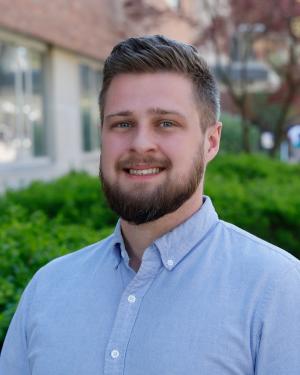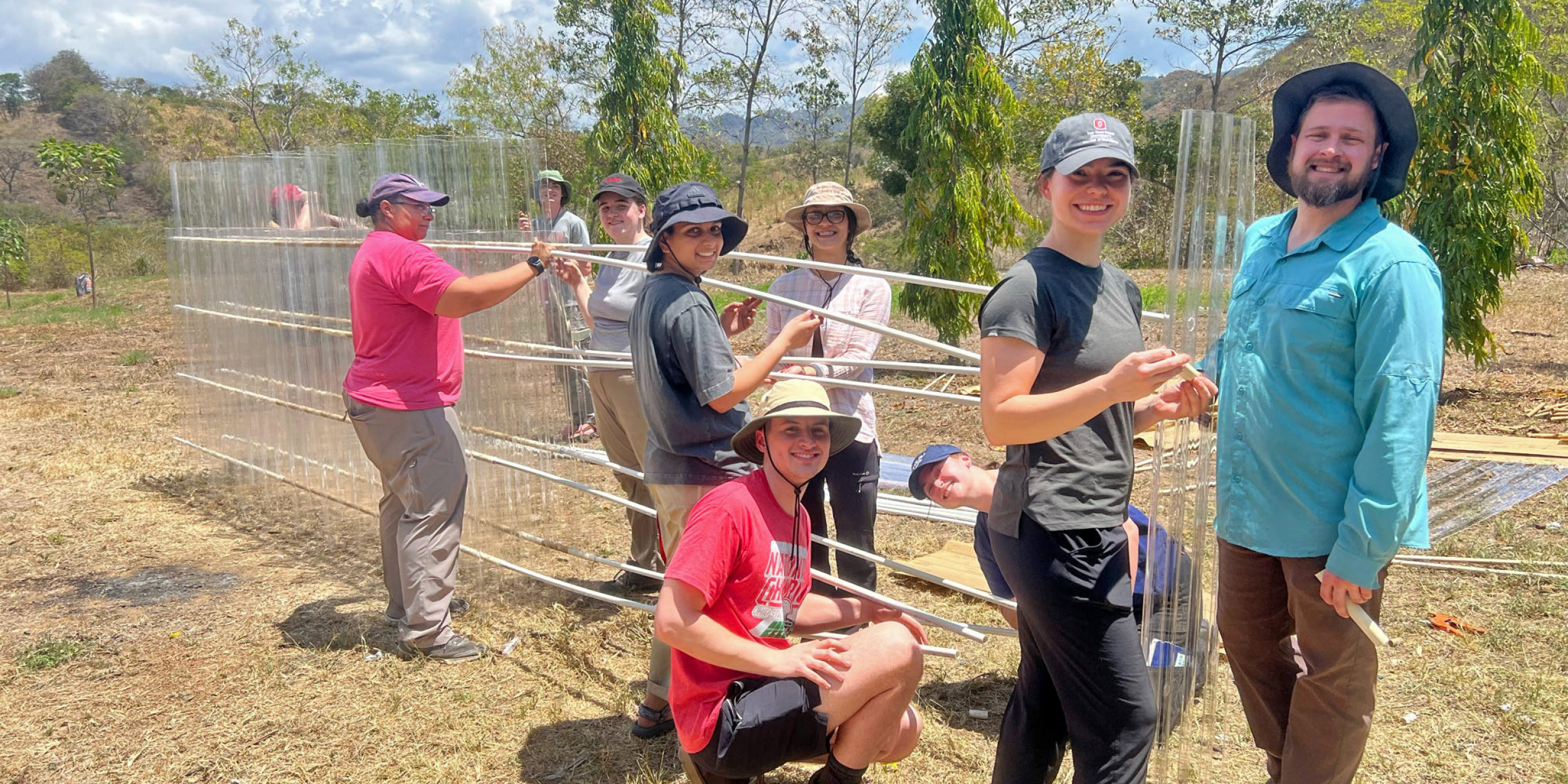More than 2 billion people lack access to safe water on tap. Students in the Humanitarian Engineering program led by Assistant Professor of Professional Practice Patrick Sours are looking to change that statistic.
The Humanitarian Engineering program aims to educate students on the application of science and engineering to address complex societal challenges, such as access to clean water or food insecurity, with an emphasis on applied engineering and socio-cultural learning experiences.
Sours has participated in over a dozen education abroad programs to Tanzania, Honduras, Guatemala and Ghana during his time at Ohio State, and as an instructor he combines various classroom offerings with engaging experiences working with international and local partners to implement human-centered engineering designs.
“We really lean into this idea of ‘wicked problems.’ We have a blossoming partnership with the Wicked Science Program run out of the Department of Anthropology. Students spend time thinking and preparing for these problems and when we go abroad to work with the stakeholders in the community, they come away with complex project management skills that you can’t get in other settings,” reflected Sours.

Most recently, Sours led a program to Honduras to improve clean water access. Students worked with organizations like Agua Para el Pueblo, Zamorano University and Agua Clara Reach to support rural communities throughout Honduras and Central America. While in country, the group helped assemble and install water treatment plant components, which uses the power of gravity to filter water.
“The technology we’re working on at Ohio State is applicable all over the world. Whether its Central America or Appalachia, students are becoming more well-rounded global citizens through our classes and are better prepared for their careers,” noted Sours.
One key finding of Sours’ coursework is that students return from his programs abroad with not just technical expertise but also a significant increase in intercultural competence as measured by the Intercultural Development Inventory (IDI).
Students who participated in Sours’ Global Capstone courses achieved an average IDI growth of 12.52 over two semesters, which is over four points, or more than 50% higher than any other similar study conducted. He also found that students gained teamwork, communication and self-understanding competencies.
“I’ve often been asked, ‘Why do students need to go abroad?’ When they work as a team with our community partners and have these challenging experiences problem-solving in a different setting, when they come back and join the workforce, they’re better communicators, better teammates and they’re better prepared to engage with stakeholders who have different values or ways of life.”
Sours first began his international journey at Ohio State as a student, where he studied abroad in Guatemala, Honduras, India and Tanzania, staying in Columbus for his master’s degree and PhD in research related to humanitarian engineering and its quantitative impact on students and the community. He now devotes his time to trying to provide a similar experience to students while constantly improving the course and program structure to balance student learning and meaningful community impact.
“For some of my students it’s their first time out of the country,” said Sours. “Thinking back on my time abroad and the faculty that made those programs so special, it is incredibly rewarding to help create and navigate these experiences for new students, especially engineers.”
This summer, Sours will lead a group of students to Tanzania while striving to make his programs more affordable and integrate more seamlessly into the engineering curriculum, and looks forward to his new laboratory, the Impact Lab, opening in spring 2026 at the soon-to-be-completed Biomedical and Materials Engineering Complex on North Campus.
